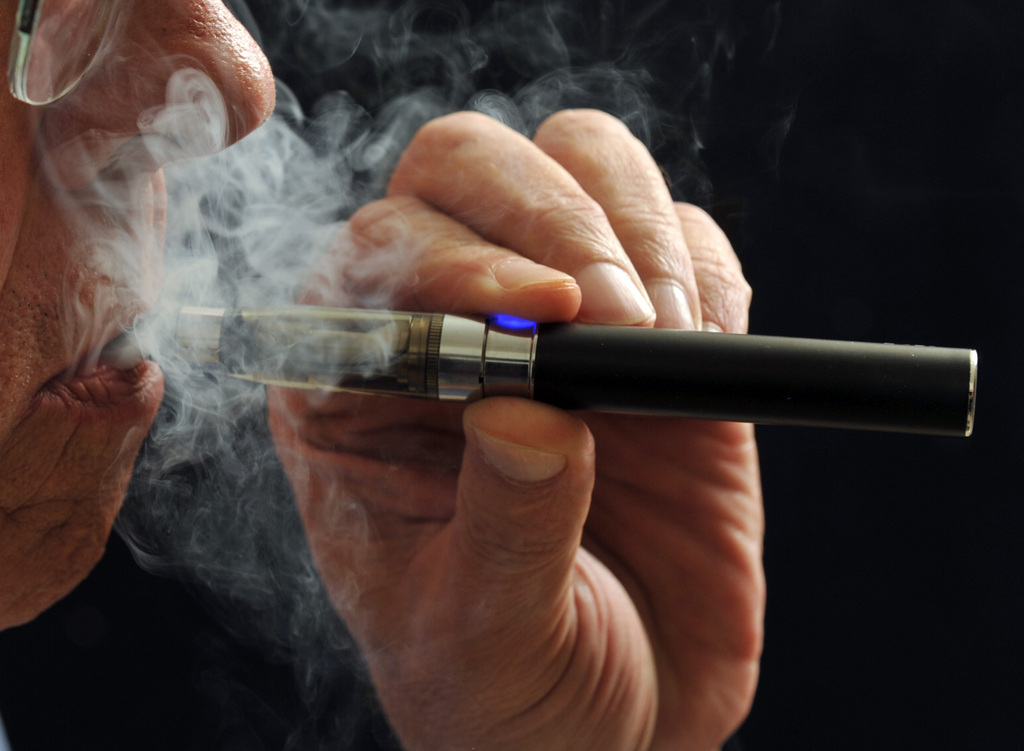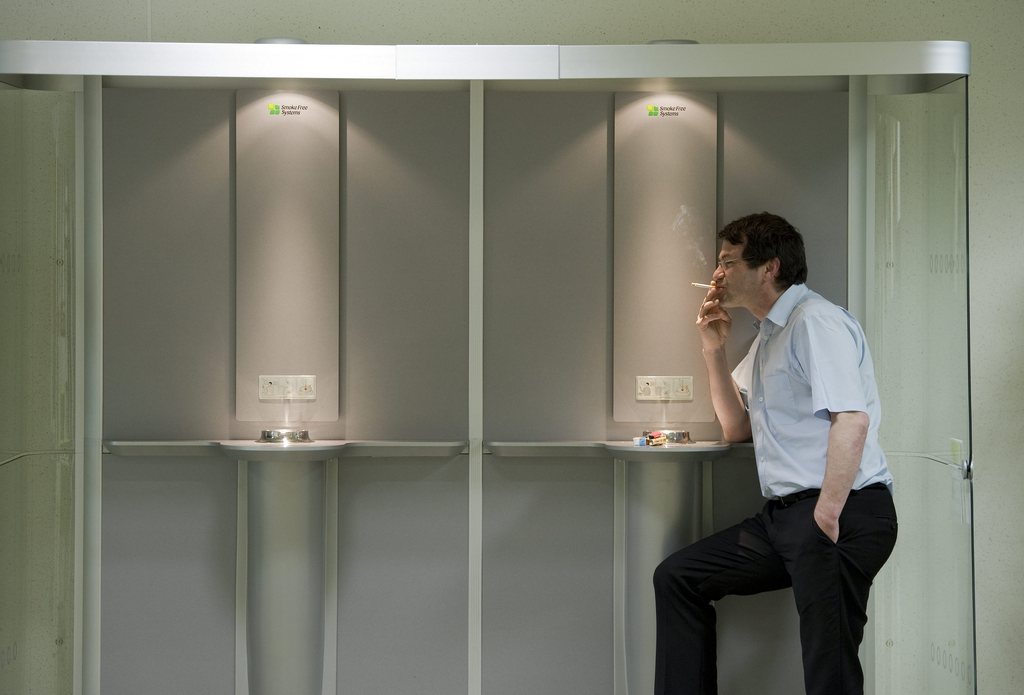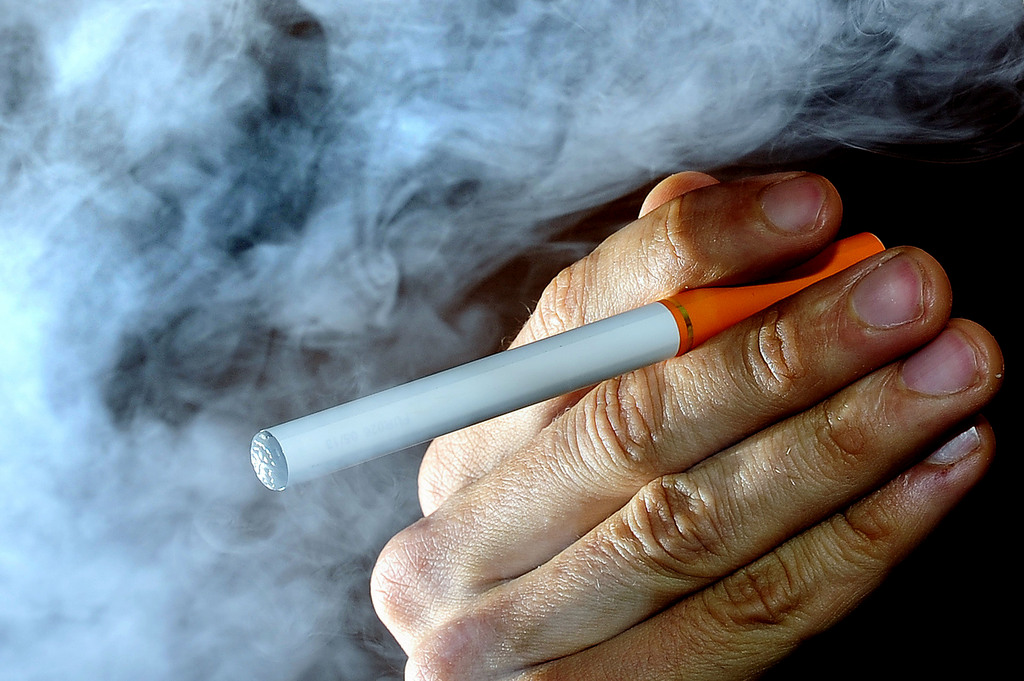WHO report ‘gives misleading view on e-cigarettes’

A review of e-cigarettes commissioned by the World Health Organization (WHO) contains errors, misinterpretations and misrepresentations, meaning policymakers may miss their relative health benefits, according to Swiss and European tobacco addiction experts.
In a critique of the WHO’s background paper on e-cigarettesExternal link, which acted as a blueprint for a WHO report last month calling for more regulation of the devices, they said its evaluation of the evidence was inaccurate (see box).
They also criticised the WHO-backed reports for “using alarmist language to describe findings and to present opinion as though it were evidence”.
One of the authors, Jean-François Etter from the Institute for Global Health at the University of Geneva, said current use of e-cigarettes – which use battery-powered cartridges to produce a nicotine-laced vapour – by young, first-time smokers was extremely rare and youth smoking rates were declining.
Another co-author, Ann McNeill from the national addiction centre at King’s College London, said she was “shocked and surprised” when she read the WHO report. “I felt it was an inaccurate portrayal of the evidence on e-cigarettes.”
The uptake of e-cigarettes has rocketed in the past two years, but there is fierce debate about their potential risks and benefits.
Because they are new, there is a lack of long-term scientific evidence on their safety. Some experts fear they could lead to nicotine addiction and serve as a gateway to tobacco smoking, while others say they have enormous potential to help millions of smokers around the world kick their deadly habit.
The sale of e-cigarettes containing nicotine is illegal in Switzerland, but importing them for personal use is tolerated. Nicotine-free e-cigarettes can be purchased in Swiss pharmacies.
Safer alternative
The WHO’s report last month called for stiff regulation of e-cigarettes as well as bans on indoor use, advertising and sale to minors.
McNeill said that while e-cigarettes are relatively new and “we certainly don’t yet have all the answers as to their long-term health impact”, it is clear they are far safer than cigarettes, which kill more than six million people a year.
Yet, the report, which is on the agenda of the 6th Conference of the PartiesExternal link to the WHO Framework Convention on Tobacco Control being held in Moscow from October 13-18, recommends making it harder to bring e-cigarettes to market.
This has the potential to put smokers off them, the experts said, putting policymakers and the public in danger of forgoing the public health benefits e-cigarettes could have.
“The bottom line is that this report will promote traditional cigarettes by harming safer alternatives,” Etter said, adding that the WHO presumably worries about being criticised if it doesn’t take a clear position.
Criticisms
Jean-François Etter and his co-authors, whose critique was published in the journal Addiction, focused on several key statements in the WHO-commissioned review which they said were misleading:
– The review implied e-cigarette use in youth is a major problem and could be acting as a gateway to smoking, they said, when in fact current use by non-smokers is extremely rare and youth smoking rates are declining.
– The review fails to acknowledge that e-cigarettes are not just less harmful than tobacco cigarettes but that the concentrations of toxins are mostly a tiny fraction of what is found in cigarette smoke.
– The review implies that bystanders can inhale significant levels of toxins from the vapour, when the concentrations are too low to present a significant health risk.
– And the review gives the impression that evidence suggests e-cigarettes make it more difficult for people to stop smoking, when the opposite is true, the experts said.

In compliance with the JTI standards
More: SWI swissinfo.ch certified by the Journalism Trust Initiative



You can find an overview of ongoing debates with our journalists here . Please join us!
If you want to start a conversation about a topic raised in this article or want to report factual errors, email us at english@swissinfo.ch.